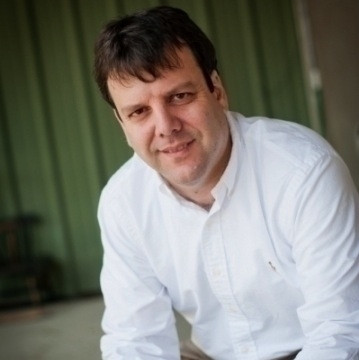Rob Horowitz: Obama Leads National Conversation on Trayvon Martin
Tuesday, July 23, 2013
In the wake of last week’s not guilty verdict in the Trayvon Martin case, President Obama–expertly playing the role of Educator-in-Chief–commented extensively on the broader racial context underlying the reactions to the verdict in the African-American community.
While Obama reiterated that he believed that it was a fair trial and that the jury verdict must be respected, even going a step further and lowering expectations of the likelihood of a federal civil rights case, he also explained in detail to the nation as a whole the understandable sources of the anger in the African-American community created by this result. President Obama remarked, “You know when Trayvon Martin was first shot I said that this could be my son. Another way of saying that is Trayvon Martin could have been me 35 years ago. And when you think about why, in the African-American community at least there’s a lot of pain around what happened here, I think it is important that the African-American community is looking at this through a set of experiences and a history that doesn’t go away.”
Obama went on to say, “There are very few African American men in this country who haven’t had the experience of being followed when they were shopping in a department store. That includes me. There are very few African-American men who haven’t had the experience of walking across the street and hearing the locks click on the doors of the cars. That happens to me-at least before I was a senator. There are very few African-Americans who haven’t had the experience of getting on an elevator and a woman clutching her purse nervously and holding her breath before she has a chance to get off. That happens often.”
GET THE LATEST BREAKING NEWS HERE -- SIGN UP FOR GOLOCAL FREE DAILY EBLASTThe President explicitly acknowledged the fact that young African-American men are “disproportionately perpetrators of violence” and emphasized the importance of individual responsibility and accountability for one’s own actions. But at the same time, he affirmed the undeniable role of our nation’s difficult racial history in creating some of the dysfunction that takes place in poor black neighborhoods and asserted that it makes it no less painful when all African-American boys are “painted with a broad brush” because of the actions of a few.
Generally speaking, the President’s measured, thoughtful and constructive remarks were well-received. On Sunday, Senator John McCain (R-AZ), called the remarks “very impressive” on CNN’s State of the Union. The people with the most standing to comment, Trayvon Martin’s parents said, “They were deeply honored and moved. President Obama sees himself in Trayvon and identifies with him. This is a beautiful tribute to our boy.”
The praise was far from universal, however, as there were some predictable reactions from a number of the more strident conservative commentators. Perhaps the most outrageous one was made by Sean Hannity on his syndicated radio program: "Now the president's saying Trayvon could've been me 35 years ago. This is a particularly helpful comment. Is that the president admitting that I guess because what, he was part of the Choom Gang and he smoked pot and he did a little blow–I'm not sure how to interpret because we know that Trayvon had been smoking pot that night,“ said Hannity.
President Obama limited the policy specifics to a call to reexamine stand your ground laws and better police training to reduce racial profiling. However, advancing an extensive policy agenda was not the purpose of this speech. It was to educate and move the nation by speaking from the heart about a broader understanding of this tragedy, which despite the protestations of some, cannot be neatly untangled from are nation’s racial history. On that score, the President truly succeeded. But don’t take my word for it. Read the President’s remarks and judge for yourself.
Rob Horowitz is a strategic and communications consultant who provides general consulting, public relations, direct mail services and polling for national and state issue organizations, various non-profits and elected officials and candidates. He is an Adjunct Professor of Political Science at the University of Rhode Island.
Related Articles
- Rob Horowitz: Immigration Reform Moves Forward
- Rob Horowitz: Progress on Comprehensive Immigration Reform
- Rob Horowitz: Tough Fight Coming On Immigration Reform
- Rob Horowitz: Important Climate Change Milestone Exceeded
- Rob Horowitz: RI’s Congressional Delegation—Afraid of the Elderly
- Rob Horowitz: Universal Background Checks Gain Traction
- NEW: Horowitz Responds to Charge
- Rob Horowitz: Let’s Get Serious About Prescription Drug Abuse
- Rob Horowitz: Republican Orthodoxy on Marriage Equality Cracking
- Rob Horowitz: WA Bridge Collapse A Wake-Up Call For Rhode Island
- Rob Horowitz: Bob Woodward Goes Off the Rails
- Rob Horowitz: Let’s Celebrate RI’s Adoption of Marriage Equality
- Rob Horowitz: Rutgers President Ducks Responsibility On Rice
- Rob Horowitz: Climate Change Adaptation Moves on to the Public Agenda
- Rob Horowitz: New Media Trends Accelerate
- Rob Horowitz: Signs of Life for Grand Bargain
- Rob Horowitz: Congress Should Keep A Lid On Student Debt
- Rob Horowitz: Obama Puts Retiree Entitlement Programs on the Table
- Rob Horowitz: Supreme Court Fuels National Push for Gay Marriage
- Rob Horowitz: How The Boston Marathon Tragedy Brings Us Together
- Rob Horowitz: Obama Steps Up on Climate Change
- Rob Horowitz: The Ties That Bind Help Us Weather the Storm
- Rob Horowitz: Imagine Democracy, Powered Digitally
- Rob Horowitz: President Hillary Clinton? Not So Fast
- Rob Horowitz: The Ultimate City: Bohemians, Gays & Jobs



